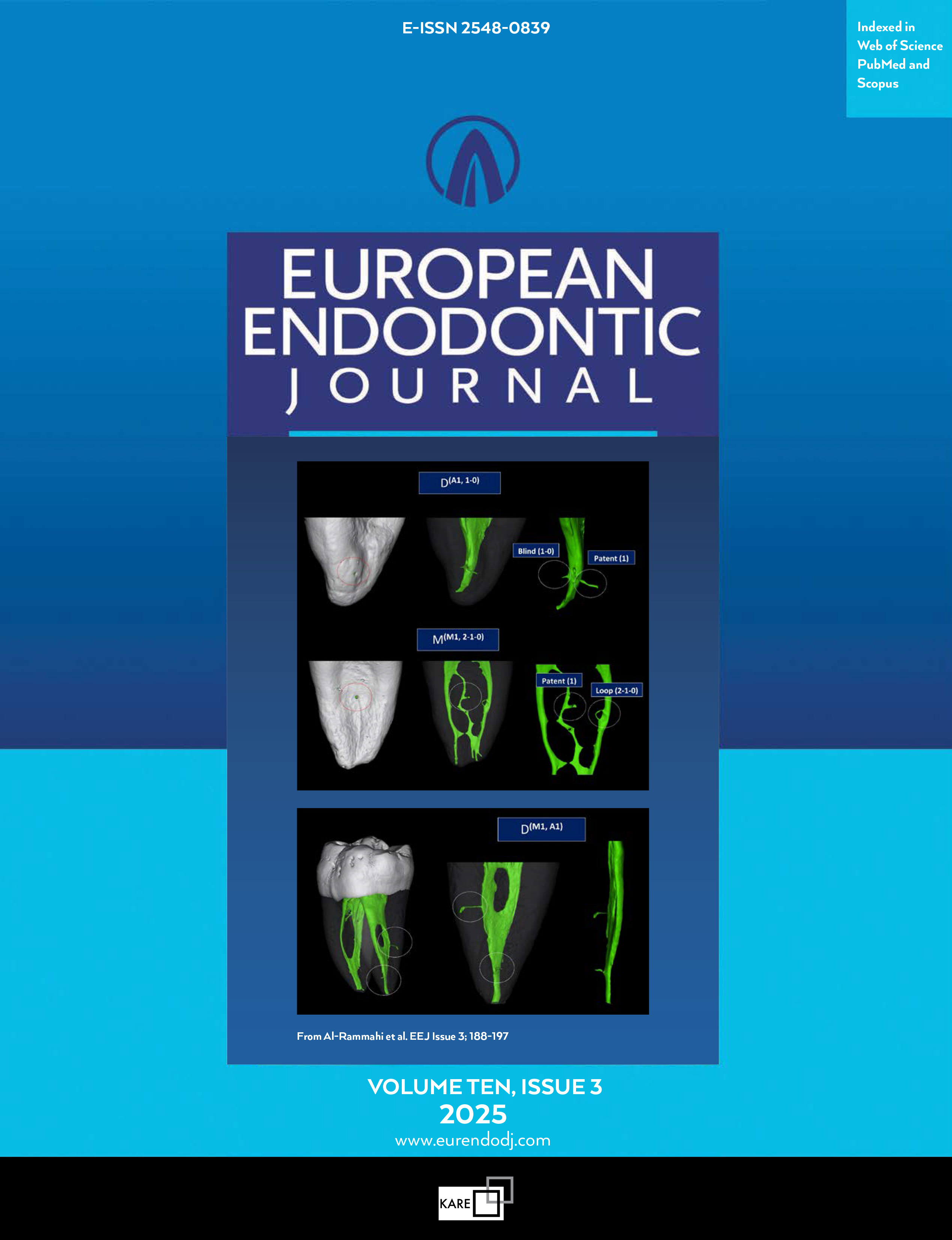Metrics
2024 IMPACT FACTOR
5 year Impact Factor
Eigenfactor Score
2024 CiteScore
Journal Citation Reports
(Clarivate 2025, JIF Rank)
Neurosensory Disturbances After Apical Surgery of Mandibular Premolars and Molars: A Retrospective Analysis and Case-Control Study
Thomas von Arx1, Sebastian Bolt1, Michael M. Bornstein21Department of Oral Surgery and Stomatology, School of Dental Medicine, University of Bern, Bern, Switzerland2Department of Oral Health & Medicine, University Center for Dental Medicine Basel UZB, University of Basel, Basel, Switzerland
Objective: Apical surgery is an intervention to treat teeth with persistent or recurrent endodontic infection. The proximity of the mental foramen and mandibular canal may pose a risk of altered sensation when performing surgical interventions in the posterior mandible. The objective of this study was to determine the rate of neurosensory disturbances after apical surgery of mandibular premolars and molars. The secondary objective was to evaluate whether the occurrence of altered sensation correlated with the distances from the apex or the periapical lesion to the relevant anatomical structures.
Methods: The charts of patients treated from September 1999 to December 2015 were retrospectively evaluated if an apical surgery had been performed in mandibular premolars or molars, and a minimum period of 1-year follow-up was documented. Patients with trauma or other surgical interventions in the same hemimandible were excluded. Cases with postsurgical altered sensation were defined as the test group. From the pool of unaffected cases, patients were selected to serve as controls. Two- or three-dimensional radiographs of test and control cases were assessed with regard to the shortest distances from the root apices/lesions to the mental foramen or mandibular canal.
Results: The study population included 243 patients with 249 apical surgeries, of which 12.9% led to postoperative neurosensory disturbances. Sensation returned to normal within 22 days on average. The most frequent findings were hyperesthesia or paresthesia. With regard to the treated type of tooth, second premolars resulted more frequently (22.6%) in altered sensation than the other teeth (11.2 to 13.0%; p=0.310). There were no significant differences when comparing test and control cases regarding the measured distances in radiographs from the apex/lesion to the relevant anatomical structures.
Conclusion: Altered sensation may typically occur following apical surgery in posterior mandibular teeth. However, in all cases of the present study, skin sensitivity in the lip/chin region returned to normal. The clinician must be particularly careful when performing apical surgery of second premolars due to the proximity of the mental foramen. (EEJ-2020-06-134)
Manuscript Language: English
(824 downloaded)


